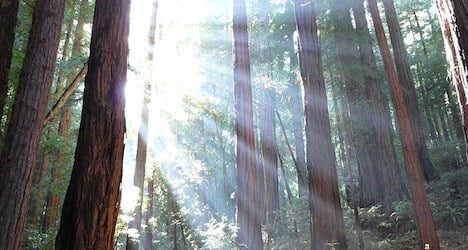"The overall picture is alarming," said Jane Smart of the International Union for Conservation of Nature (IUCN), which is behind the Red List of Threatened Species released on Tuesday.
To date the list has assessed 70,294 of the world's 1.82 million known species of plants and animals.
Smart, who heads IUCN's biodiversity conservation union, insisted urgent and more efficient action was needed "if we are serious about stopping the extinction crisis that continues to threaten all life on Earth."
According to the update, 20,934 species are currently listed as "threatened with extinction", compared with 20,219 last October.
IUCN's Red List Manager Craig Hilton-Taylor pointed out to AFP that the rise of more than 700 species in this category was explained by increased pressure on a number of them. It was also due to species moving down from the more serious "endangered" category, as well as new species being added to the assessment list.
Tuesday's updates focused especially on the decline among conifers, a category of cone-bearing trees and shrubs that includes the world's oldest and largest organisms, such as the Bristlecone Pine that can live to be almost 5,000 years old and the Coast Redwood which can reach a height of 110 metres.
The report, which provided the first global reassessment of conifers since 1998, showed that a full 34 percent of the world's cedars, cypresses, firs and other such plants are threatened with extinction — compared with 30 percent 15 years ago.
A full 33 species of conifers had declined during this period, with the number now in the "endangered" category, teetering on the edge of extinction, jumping to 27 from 20 in 1998, according to Hilton-Taylor.
"We are sending a warning," he told AFP, stressing the huge importance of conifers both in economic terms as sources for paper and timber industries, and in environmental terms for their role of sequestering carbon.
"The more we have deforestation in the northern hemisphere, the greater the impact will be in terms of climate change," he said.
Tuesday's report also provided the Red List's first-ever global assessment of freshwater shrimps, lamenting that a full 28 percent of the carideans vital to freshwater ecosystems are threatened with extinction.
One such species, the Macrobrachium leptodactylus, was declared extinct after it fell "victim of habitat degradation and urban development," it said.
The Cape Verde Giant Skink, a lizard that had lived on a single island and two small islets and which was last seen in 1912, was also declared extinct, as was the Santa Cruz Pupfish, once found in the Santa Cruz River basin in Arizona, which disappeared due to water depletion.
Hilton-Taylor told AFP it varies greatly how quickly a species can be declared extinct, pointing out that the Cape Verde Giant Skink was believed to have been driven into extinction 100 years ago by the introduction of rats and cats, but that its rocky habitat had made it difficult to determine for sure that it was gone.
The Santa Cruz Pupfish, meanwhile, had not been seen in the wild since the 1960s, he said, voicing hope though that "it may still be in some hobbiest collection somewhere."



 Please whitelist us to continue reading.
Please whitelist us to continue reading.
Member comments